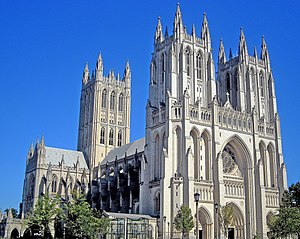Should Churches Be Tax Exempt?
May 10
The passing of Amendment One in North Carolina yesterday got me thinking about a long-standing law in the United States that gives tax-exempt status to recognized religious institutions. The basic idea is that the US was founded on religious freedom and the surest way to prevent the free exercise of religion is to tax it . Exempting a church from taxes is also one of the best ways to keep the “separation of church and State” as described by Thomas Jefferson in his letter to the Danbury Baptists. This nation was founded on the basis that people should be able to practice whatever religion they’d like, and the government should have no ability to prosecute or privileged individuals for religious reasons – it’s supposedly why the Pilgrims came across on the Mayflower.
Over the past few months many churches in North Carolina have taken a rather active stance in favor of Amendment One, from simply putting up signs in favor of the amendment to having their pastors actively speak to the media that they are supporting the amendment. Beyond that I’ve heard quite a bit of anecdotal evidence that some churches are even telling their congregation that they should vote for Amendment One. One of the biggest Holy Rollers of all time, Billy Graham, came out enthusiastically for Amendment One. By taking an active stance for such a politically divisive issue, these churches are without a doubt getting political – if that’s the case, shouldn’t the rewards for staying politically neutral, tax exemption, be taken away?
A tax exemption is not a right, there is no constitutional mention at all of a religious institution’s right to not pay taxes. In fact, there are forms and qualifications to submit to the IRS that any tax exempt organization has to complete to show that they get the privilege of paying less or no taxes. The whole purpose of the tax exemption in the first place was because churches were believed to “fill in the gaps” in terms of charity and helping the poor and destitute, the gaps that the government was unwilling or unable to take care of. If a church is taking a political stance, then they are intrinsically swaying voters and changing outcomes and results regardless of the original intentions.
The right to not pay taxes is fine for charities, but when a church decides to speak out against individual rights the IRS has the right to veto that church’s application for tax-exempt status.
The Political Observers
Gay marriage, Separation of Church and State, Tax exemption
 RSS
RSS
